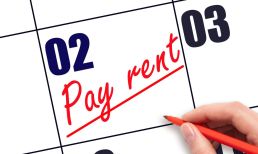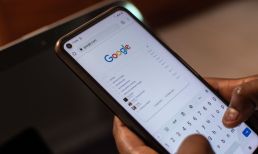For the more than 170 million Americans who live paycheck to paycheck — three-quarters of all American workers, according to a recent survey — the idea of better financial planning can seem a bit like wanting a pet unicorn. It would certainly be nice, and something to hope for, but not really something to plan on.
For salaried and hourly American workers — across age, demographic and income levels — hit by wages that are rising much more slowly than the costs of education, housing, healthcare and day-to-day living, managing money and planning around it doesn’t extend much further than finding a way to stretch a dollar to make all the ends more or less meet.
Even, a financial health startup, thinks it can help workers of all stripes do better. The firm wants to introduce customers to a new world of holistic financial management by using data tools that help customers budget, spend, save and — even better — customize their payment schedules by allowing workers access to funds they’ve already earned with their InstaPay platform.
Taken as a package, according to Even, its tools help customers set goals, eliminate accidental overspends, lower their interest payments and “move from paycheck to paycheck, to paycheck to progress.”
“Americans lose $240 billion every year to predatory financial services like credit cards, overdraft fees and payday loans. In contrast, Even’s business model is set up so we only profit when our customers do. We charge a flat, predictable monthly subscription, like Netflix,” noted Even CEO Jon Schlossberg. “In exchange, our members get a new set of financial services, built from the ground up to fit into busy people’s lives, so they actually use them — to spend smarter, avoid debt and save money. If people see value in those services and keep using them, we profit; if they don’t, we don’t.”
And while consumer progress is usually Even’s focus, today the startup has some progress of its own to announce: a $40M Series B round of funding. The round was led by Keith Rabois of Khosla Ventures, with participation from Valar Ventures, Allen & Company, Harrison Metal, SV Angel, Silicon Valley Bank, Bull City Venture Partners (BCVP) and others.
Advertisement: Scroll to Continue
“The financial services available to Americans today are predatory, due to their incentive to have consumers fall deeper into debt. Even flips this model on its head: They succeed as a business when their users succeed financially. This mission is why we invested in Even at the start and the overwhelmingly positive response to their partnership with Walmart only made us more confident in the massive opportunity,” noted lead investor Keith Rabois, general partner at Khosla Ventures.
The partnership with Walmart — the nation’s largest employer — was announced in late 2017 and saw Even directly integrated with Walmart’s massive attendance, payroll and banking systems to offer its financial wellness tools as a workplace benefit.
In the first six months since partnering with Walmart, more than 200,000 Walmart associates were actively using Even to manage their finances and access their wages early. Given Walmart’s size and scale, that means, as of today, Even has signed on 15 percent of the U.S. workforce. Moreover, Even reports, 75 percent of Walmart associates on Even use the app every week, and 45 percent use Even every day. The typical Even-Walmart worker uses the app to check their “OK to spend” balanace at least four days a week.
“We believe this is the right thing to do, and we are happy to champion it,” Judith McKenna, Walmart’s chief operating officer, said in an interview at the time. She added that workers who are less worried about cash issues “feel more confident and more settled at work.”
And more settled workers have clearly also settled some investors on the business model — hence the big Series B.
Karen Webster caught up with Even CEO Jon Schlossberg shortly after the big news broke. We’ll have her conversation with him on a half a year of working with Walmart — and where Even plans to go next — in reports tomorrow morning.
Be sure to tune in.




